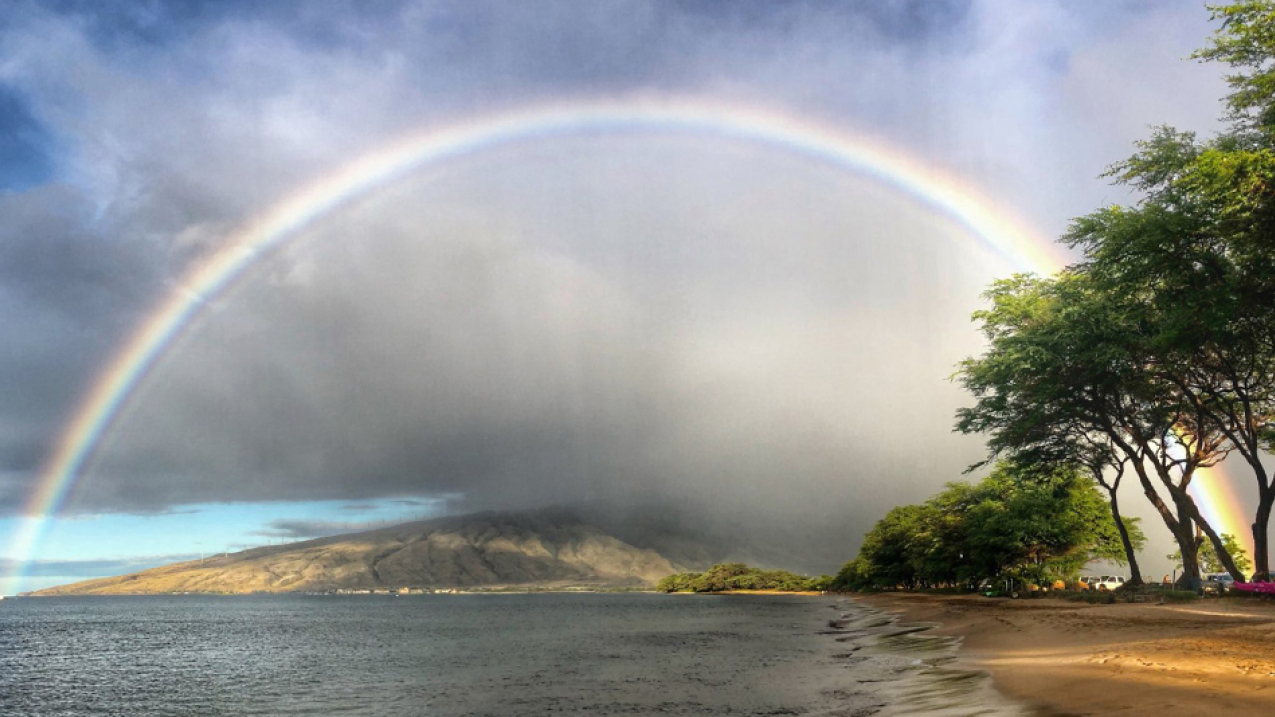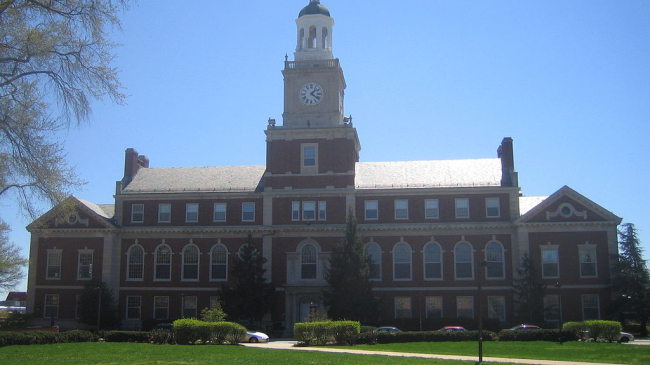In March 2021, Hawaiian Islands Humpback Whale National Marine Sanctuary and Waikīkī Aquarium offsite link brought speakers together across a distance of 7,500 miles for a virtual educator workshop. Joining from American Samoa, Oʻahu, Maui, Hawaiʻi, and Washington, D.C., they were connected by a common goal: to share resources for educators in the Pacific Islands.

Early morning rainbow along the south shore of Maui taken on July 29, 2019 in the Hawaiian Islands Humpback Whale National Marine Sanctuary. (Image credit: Jeff Moore/NOAA)
The two-day workshop introduced educators to three spectacular marine areas in the Pacific: Hawaiian Islands Humpback Whale National Marine Sanctuary, which protects the whales’ winter habitat off of Maui; Papahānaumokuākea Marine National Monument, one of the largest marine conservation areas in the world; and National Marine Sanctuary of American Samoa, which protects coral reef habitat in the cultural context of Fa`a-Samoa (the Samoan way of life).
“We’re all islands,” said Patty Miller, education coordinator for the Hawaiian Islands Humpback Whale National Marine Sanctuary. “We all have the same issues in terms of environmental issues.”
The workshop, part of the National Marine Sanctuaries Webinar Series, built on NOAA’s partnerships and collaborations in the Pacific region and strove to strengthen connections with communities that had become more fragmented during the pandemic. NOAA speakers shared lessons on recycling in an island community, coral reef ecology, and marine mammal biology. Special guests included Andrew Rossiter, Ph.D., Director of the Waikīkī Aquarium, Hawaiʻi Congressman Ed Case, and John Armor, Director of the Office of National Marine Sanctuaries.
Two hundred ninety-five people attended on the first day of the workshop and 100 on the second day, tuning in from Guam, American Samoa, Hawaiʻi, and the continental United States. Attendees reported a higher likelihood of using the content in their work in the next year — 61% on day 1 and 76% on day 2 — compared to the average of 42% for the 54 National Marine Sanctuaries Webinars offered in fiscal year 2021. All survey respondents were “likely” or “very likely” to attend a future presentation in the National Marine Sanctuaries Webinar Series, as well as to recommend the series to others.



